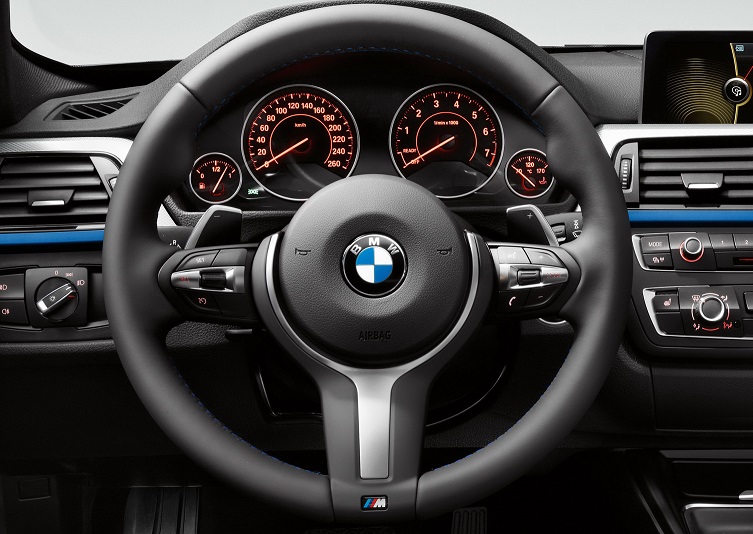Does Money Make You Happy?
I am a firm believer that money itself does not make you happy. It can, however, do things to foster happiness, like give you the freedom to seek out the things that you want, armor you against unforeseen struggles, and provide you with the luxury of being able to tune out the rest. In short, while money certainly isn’t the key to happiness, it may admittedly lend an advantage in getting you there.
An Exercise in Happiness
Let’s do a brief mental exercise: would you rather purchase a shiny new BMW and large, 3-story house, or opt for a 5-year-old Honda Civic and a house half of the size? Which of these lifestyle choices would ultimately provide you with the greatest overall happiness?
Let’s break down the costs:
Inflated lifestyle
- Overall cost of purchasing a new BMW: ~$50,000
- Average MSRP of a new BMW 3-series: $43,000 [1].
- Approximately 85% of new car purchases are financed [2].
- With $8,000 down, a 7% auto interest loan over 72 months, and average credit, this means a total eventual cost to you of ~$50,000.
- Overall cost of purchasing a 3,000 sq. ft. house: ~$1,100,000
- Average cost of a 3,000 sq. ft. house in Massachusetts: $600,000 [3].
- With $30,000 down, a 30-year fixed rate mortgage at 4.25% [4], and average credit, this means a total eventual cost to you of ~$1,100,000.
Total cost to you: $1,150,000
Frugal lifestyle
- Overall cost of purchasing a used Honda Civic: ~$8,000
- Average cost of a 5-year-old (used) Honda Civic: ~$8,000 [5].
- With the $8,000 you would have placed down on your BMW, you can purchase this vehicle in cash.
- Overall cost of purchasing a 1,500 sq. ft. house: ~$504,000
- Average cost of a 1,500 sq. ft. house in Massachusetts: $300,000 [3].
- With $30,000 down, a 30-year fixed rate mortgage at 4.25% [4], and average credit, this means a total eventual cost to you of ~$504,000.
Total cost to you: $512,000
So what’s the difference?
If you happened to live the frugal lifestyle, then congratulations – you’ve saved $638,000 over 30 years just by having a less flashy, still-functional vehicle and a perfectly livable (albeit smaller) house. This is equivalent to an extra $1,800 in savings each month as compared to the inflated option.
Now let’s also say that you, the savvy financier that you are, invested just two-thirds of this extra $1,800 in monthly savings into your lazy, 3-fund portfolio – a well-established investment strategy whose purpose is to generate a modest ~4.5% return, after inflation, over each of these 30 years (more to come on this in another article).
What could you do with the remainder – an extra $600/mo spending money per month – for the next 30 years? The answer is anything that you want. Be it lifestyle improvements (weekend trips, funding a new hobby, or being able to spend more time with your family), or a buffer in case of emergency (an unexpected repair bill after your car’s engine called it quits, or the mounting medical costs after one of your children was diagnosed with a rare illness), you’ll have some peace of mind in knowing you have some breathing room to afford these extra items.
In the meantime, over the course of these 30 years, the other two-thirds of your savings – the $1,200/mo investment – will likely have grown to nearly $1M [6], earning you an additional $600K over what you originally contributed. And what could you do with a million dollars? Well, you could easily retire.
Now, let’s take a second look at the alternate (inflated) lifestyle plan.
Sure, you got to drive that fancy new BMW, but its value depreciated rapidly, and maybe it bit the dust 15, 20 years ago. And yes, your fancy new house has been a creature comfort for you and your family for many years, but it is now 30 years older and has required twice the maintenance and reupholstering (and is now filled with twice the useless stuff) than a meager 1,500 sq. ft. house would have warranted. Plus, you’ve had to stay at your boring corporate desk job all these years just to afford it.
And you have none of the savings – not one cent, that the above (frugal) plan would have afforded you. Not the $600/mo that you could have spent on weekend trips, family vacations, college tuition payments, or those unexpected medical bills – and certainly not the $1,000,000 that you could use right now to retire outright. Sure, you have more equity in your house, but you are always strapped for cash – tied down by your belongings – and your increased property taxes, maintenance, and utility bills have significantly eroded this benefit over time.
So which route made you happier?
A Personal Anecdote
When I was lucky enough to travel through Asia for several months this past winter, I witnessed the very best of the human spirit – and the happiest too – often from those who had the very least. Like when I crashed my motorcycle in rural Vietnam, and was fed, fixed, and sent on my way by a perfect stranger, who had nothing but a two-walled bamboo hut for him and his three children, and possessed the warmest smile I had ever seen. Or the many locals with whom I spoke in Indonesia who had chosen to leave the city to live closer to their loved ones in the countryside – happily selling soup off the back of their motorbikes by day, and singing songs with their friends by night – because it was a better lifestyle.
These people were arguably some of the happiest I have ever met – yet they had nearly nothing when measured by any sort of monetary yardstick.
I know now that what makes me happy has nothing to do with money; relationships, family, and a sense of personal accomplishment are the most important things to me, and worth way more than any dollar amount that I could ever place on them (notice how none of these values included having a big house or a fancy car?).
Back to Happiness
The purpose of this article is not to pass judgment or to shame anyone into subscribing to a certain type of lifestyle – quite the opposite. The purpose is to provide you with the forward insights that I believe are appropriate for making properly-informed decisions about your own future, especially where it pertains to the values and goals that are important to you.
I also want to make clear that I am not advocating a lifestyle in which you save every last penny, such that you can defer happiness to when you eventually retire in your mid-forties. The point here is that life is for living – not for being held hostage by your expenses – and certainly not for being restricted by some habitual savings ritual. It’s important to establish a balance between the two. It’s important to have interests that fulfill you and nourish you. It’s important to weigh the financial obligations that won’t necessarily bring you happiness, such that you can give yourself the freedom to focus on the things that REALLY matter to you in life. Like helping your children take their first steps.
Anecdotes and personal experiences aside, I believe that while having a solid financial foundation clearly isn’t the highway to happiness, it can certainly smooth out the road. And while money isn’t the key to everything, it’s important to be able to make meaningful, informed decisions about your finances, such that you can consciously steer your life in the direction that you want.

















